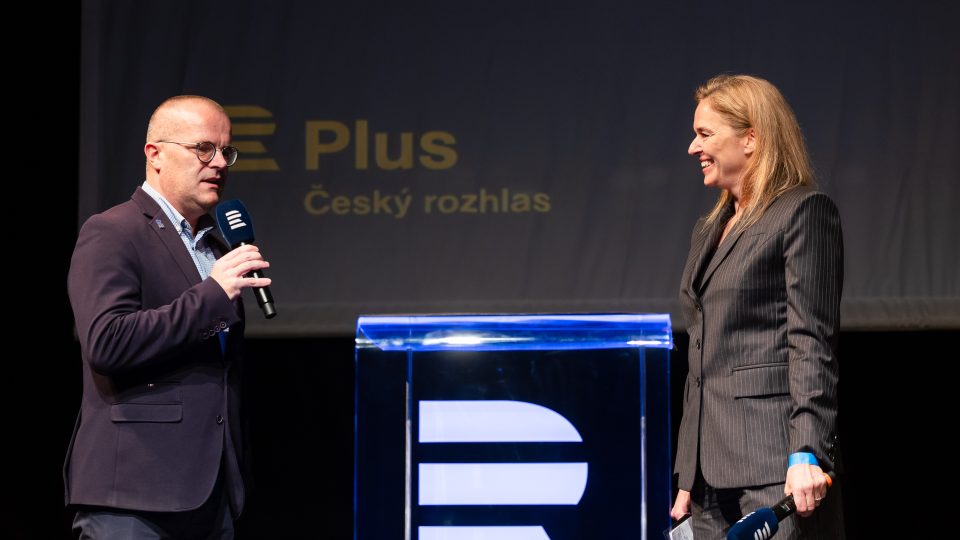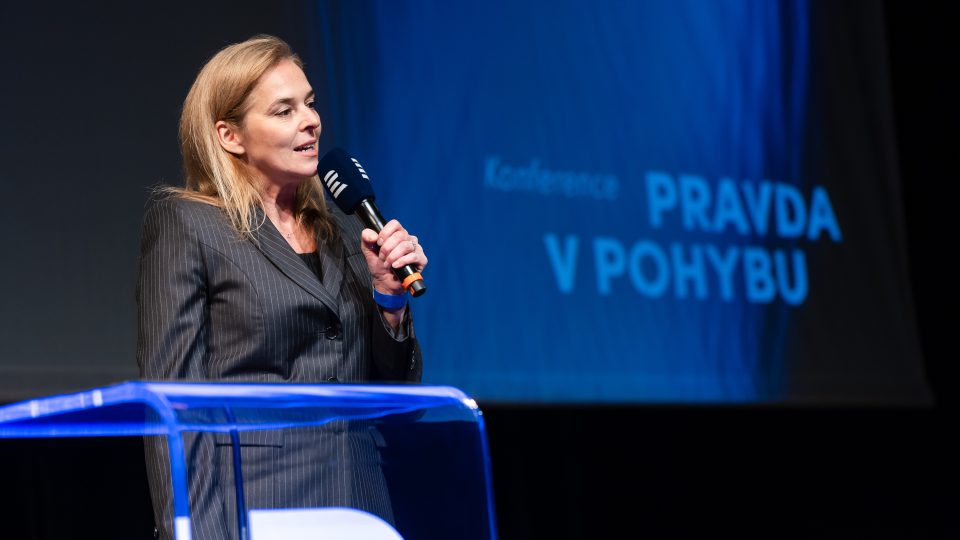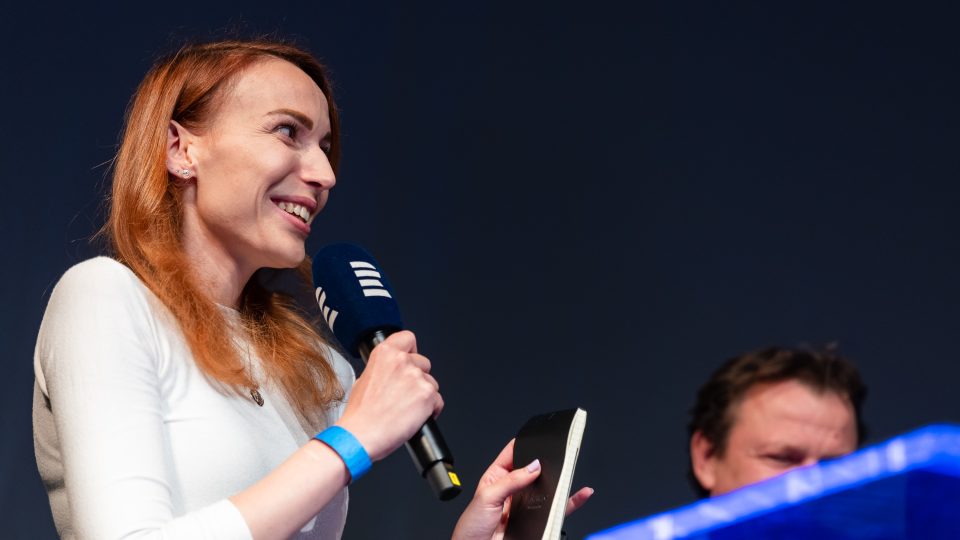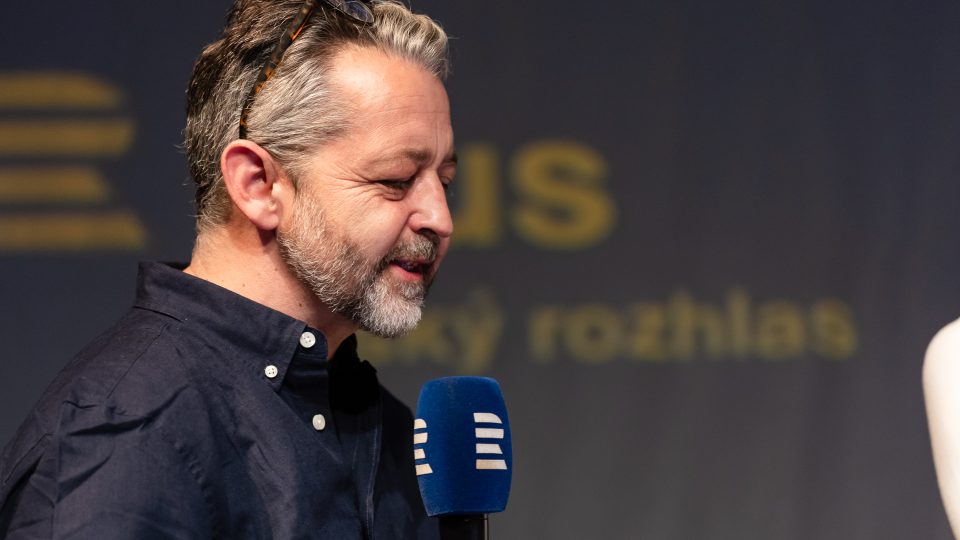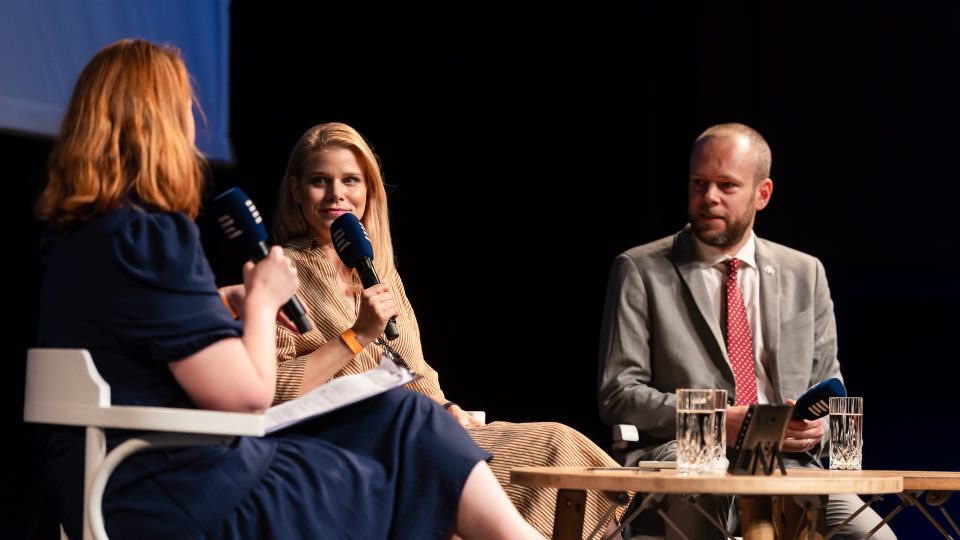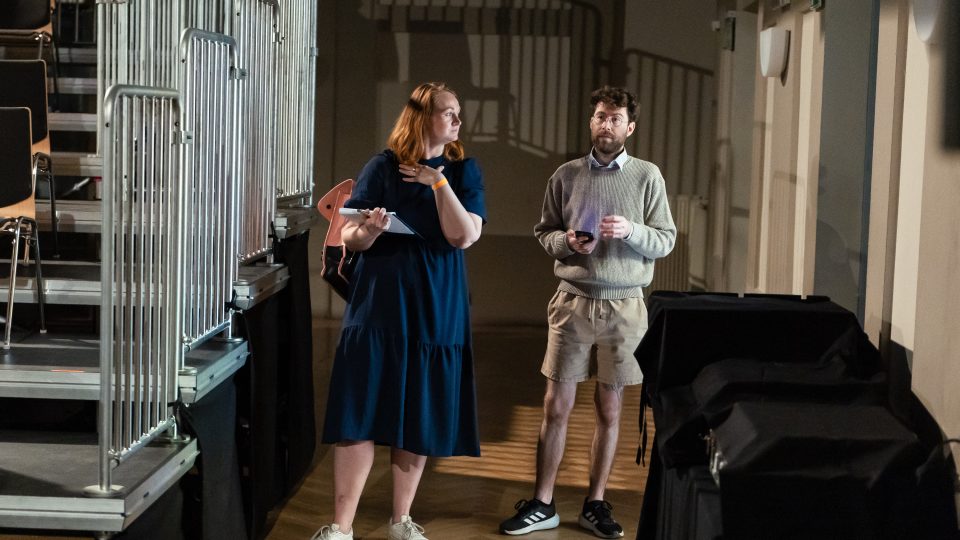„Russia is feigning self-confidence.“ Belton and Pomerantsev spoke at the Czech Radio Plus conference
"Europe alone cannot force Vladimir Putin to agree to a ceasefire. What it can do, however, is provide Ukraine with weapons and support," former Ukrainian Foreign Minister Dmytro Kuleba told the Czech Radio Plus Truth in Motion conference. Peter Pomerantsev, Věra Jourová, Misha Glenny and Catherine Belton discussed the Russian invasion of Ukraine and the threats of disinformation.
According to Kuleba, Russian diplomacy itself is notorious for its obsession with details. "If the goal is to send negotiations down the drain, make no mistake, they will engage in an endless discussion of details," he explained in an interview with host Jan Bumba.
"Instead of agreeing on a ceasefire, they propose to first assess the situation on the ground, then exchange ideas about a ceasefire, then the conditions of the ceasefire, then the method of monitoring, and so on. And that's exactly what we're seeing."
The difficulty of the negotiations was also described at the conference by Catherine Belton, a journalist for the Washington Post. "Part of the American administration doesn't remember how to negotiate with Russia, so they came to the negotiating table like little children. And on the other side was Sergei Lavrov, who took them apart," she said.
She also provided an inside look at the Russian military: "Right now, it looks like Russia has the upper hand on the battlefield, but if you look down at the nitty-gritty of how it's doing, especially in the last year, it's been losing manpower at a rate of 1 500 killed or wounded per day. About a million Russians have died in the war since the start of the conflict."
According to her, the current Russian economy is also fragile. "Putin is very good at creating this veneer of confidence when he thinks time is on his side. But analyses show us that by next year, Russia is going to be facing severe shortages of manpower and some types of weaponry," she added.
So again, Putin is very good at creating this veneer of confidence, when actually, he thinks time is on his side. But all Europe has to do is really dig in now, and the analysis shows that by next year, Russia is going to be facing severe shortages of manpower and some types of weaponry.
A world of misinformation
The second major topic that resonated at the Truth in Motion conference was the fight against disinformation.
"What we are talking about here is the rise of a certain type of propaganda. It is a discourse that limits democracy. The misuse of public space not for the purpose of winning elections but for the purpose of undermining democracy," Peter Pomerantsev of the Institute of Global Affairs at the London School of Economics, where he co-directs the Arena program, pointed out at the conference.
He also presented his guide to countering such disinformation. First, it should be about regulations that create an environment of "radical transparency" that allows citizens to understand how social networks work. Next, he said, it is crucial to create a space that is conducive to democratic discourse.
"The third thing is the content itself," he continued. There is a need to focus on emotions, and specifically on the feeling of helplessness and also on trauma. And fourth, there is a need to limit the supply chain.
Pomerantsev's view was echoed by Věra Jourová, former vice-president of the European Commission." I think it's time to speak up, we have to say it clearly. Bots and artificial intelligence are not people, so they are not protected by freedom of expression," she added.
Misha Glenny, a journalist and Rector of the Vienna Institute for Human Sciences, also presented his perspective on the problems associated with artificial intelligence. According to him, Russia and other states influence the source data for language models, which then spread their narrative.
"We are no longer in a small, safe village, there is so much going on around us that we don't even understand," he added, warning.
Historical propaganda
The Truth in Motion conference was also an opportunity to record podcasts for Czech Radio Plus. In the episode of Hlasy paměti, Lucie Korcová, Adam Drda, and Mikuláš Kroupa discussed the historical roots of war propaganda.
"Propaganda narratives don't change much, and if you look at Russian propaganda, for example, hatred of the liberal West permeates all communist and Nazi propaganda," Drda described. According to him, this common thread runs through historical propaganda all the way to Putin's current propaganda.
Another show that was given space was Chyba systému: Speciál Slovensko, featuring Pavlína Nečásková, journalist Zuzana Kovačič Hanzelová, and security analyst Victor Breiner, who spoke on the impact of disinformation on Slovak society and politics.
According to Breiner, disinformation played a significant role in Robert Fico's return to the prime minister's chair. "It happened with significant media assistance from Russia," he said.
"I think the main reason why Směr resurfaced in these conspiracy waters is that they faced a massive police investigation after the murder of Ján Kuciak and his fiancée," added Kovačič Hanzelová, adding that this gave rise to a belief in Slovakia that it is impossible to trust "anyone or anything."



